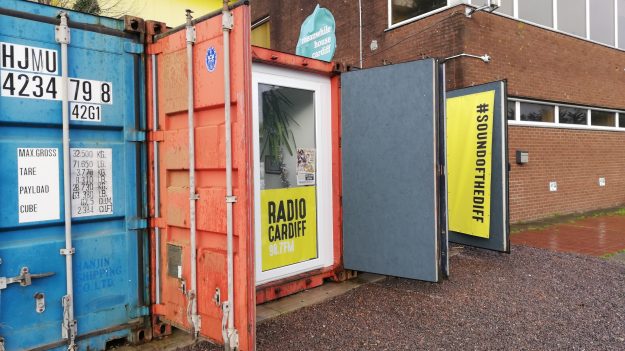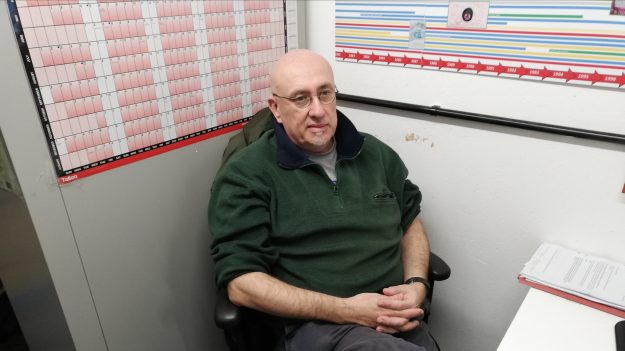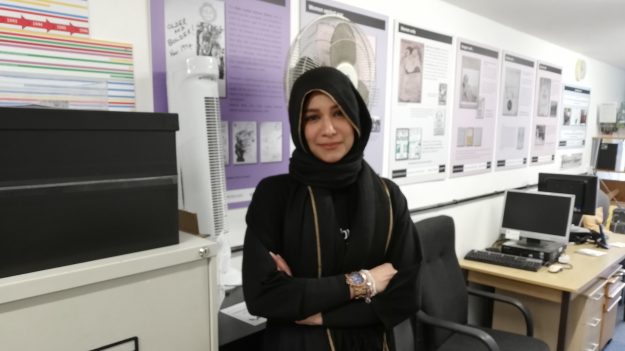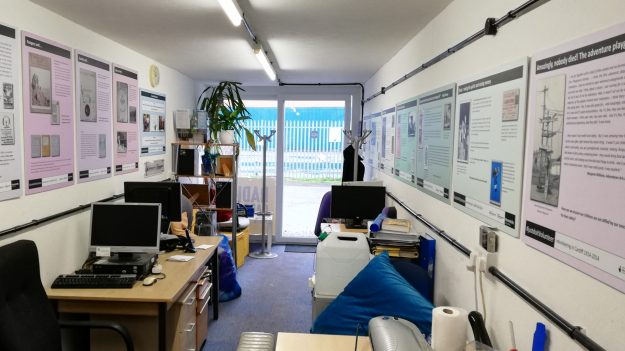Day by Day serves as a unique source of awareness and entertainment to the diverse citizens of Cardiff. How does it illustrate Cardiff’s internationalism?

Operating from within 2 compact units on Curran embankment is the community radio station of Radio Cardiff. It has a unique place in Cardiff life, being the only radio station on the planet that broadcasts just to the city, and serves as the only opportunity for Cardiff to listen to itself on terrestrial radio. Each week, over 26,000 Cardiffians tune into Radio Cardiff, and it is operated by over 100 volunteers.
Operating in a slot that Radio Cardiff has maintained since its beginning in 2007, is the program Day by Day. It’s had other names over the years: “Lunch Break”, “News, Views and Interviews”. It serves essentially as the station’s lunchtime live magazine program, and a platform for the citizens of Cardiff to hear about things that can benefit them in their day to day life. Its tagline is “It’s life as we live it”.

The program’s executive producer, Jeremy Rees, identifies Day by Day as aimed to give voice to community members with projects and initiatives for the general public good. “They could be things that tackle poverty, health initiatives. They could be community programs that bring people together,” said Jeremy. The day of my meeting with him saw the launch of a podcast encouraging local writers to write short stories and convert them into a radio piece.
The program also aims to raise awareness on an abundance of issues, ranging from violence against women to diabetes and other health-related matters to everyday problems. “Our inspiration comes from whatever is happening around us. I think in a nutshell, we try to serve and help humanity and the community,” said Rabya A. Wahid, producer and presenter of Day by Day.
Jeremy is originally from Clydach in the Valleys, and has been living in Cardiff since January 2007. “I think Cardiff is very different from other cities and towns in Britain. It probably has the closest correlation with Liverpool,” he said. He attributes this largely to its previous status as a hub for industry as a result of Cardiff Docks and the immigrants this brought to the city. “For 200 years people from different parts of the world have melded and mixed together, particularly in the south of Cardiff. We have very long- standing Yemini, Bali, African, and Caribbean communities.” He identifies the reflection of this multiculturalism as the main focus of the program. “It is our main focus to connect to black and minority ethnic communities in the city and to provide programming that you won’t hear in mainstream radio.”

Cardiff’s uniqueness as a UK city also raises its own issues, he says. “I think Cardiff has to be many things. It has to be the capital city of Wales and do its best to reflect the Welsh experience in the United Kingdom. And it has to do this while being very different from the rest of Wales, largely because of that 200 years of multi-culturalism. We are an international city, we’re a cosmopolitan city in a country that isn’t international or cosmopolitan to the same degree. So our experiences and our attitudes are quite different from the experience of people who are living in, say, Aberystwyth or in Merthyr Tydfil or in the Valleys. We have to understand the experience of people in those circumstances if we are to truly be the capital city of Wales.”
When asked to consider what particular problems stand out in Cardiff as ones he would like to raise awareness of, Jeremy considers the exponential rise in homelessness to be the most obvious, with most of these people coming from England or other parts of Wales. “Cardiff I think has a reputation as a very fair and welcoming place to come. We have a proud tradition of welcoming and helping people. But because we’ve got a government that’s focused as it is on maintaining a policy of austerity, we have an issue across the United Kingdom of people experiencing poverty and difficulties in getting work and status which is worse than we’ve seen for generations. And a liberal capital city like Cardiff obviously finds it difficult in these times because they come to us for help, and for refuge in many cases, but that places a real burden on the dwindling resources of the city itself, so that’s difficult.”

The listeners of Day to Day are reportedly very active and engaged. “They have a very strong voice. They have very strong views as well. If they don’t like us, they let us know. If they love us, they let us know. We really welcome their criticism, and their love. That is the important part of our relationship. We’re really comfortable with each other,” adds Rabya.
When asked as to any plans for the future, Jeremy says: “Day by day is growing in strength. We’re certainly exploring the new development of podcasting. Podcasting is something which has really taken off in the last couple of years as the preferred delivery of speech broadcasting. I think we’re seeing a split now between music broadcasting, you know getting in your car and turning on the radio to hear music that you like, and speech broadcasting which is more appointment to listen. Increasingly people are choosing podcasts as a way to have that delivered.”
While not currently running a podcast, Day by Day has been inspired by other community focused podcasts around the world, particularly from Canada. It is currently available on an app, as well as through online streaming, smart speakers and 98.7FM.
